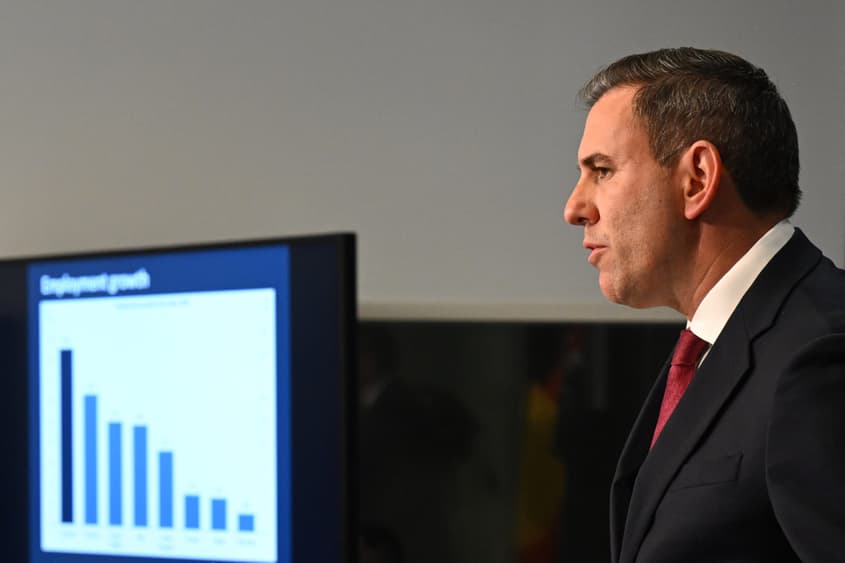A leading economist says the federal government has made a mess of its noble ambition to measure Australians’ wellbeing.
Sat 20 Sep 2025 06.00

Photo: AAP Image/Lukas Coch
A leading economist says the federal government has made a mess of its noble ambition to measure Australians’ wellbeing.
Treasurer Jim Chalmers first suggested the idea of Measuring What Matters at an event run by The Australia Institute in 2020, when he was Shadow Treasurer.
It is based on an idea from New Zealand, where then-Prime Minister Jacinda Ardern’s government introduced a Wellbeing Budget.
Across the ditch, it tracks wellbeing indicators and links them to government policy and spending, increasing funding to areas with slower progress than others.
In Australia, Measuring What Matters became a reality when Labor won the 2022 federal election.
Here, the idea is to measure areas of government policy which directly impact people’s lives, in a way that other data – like quarterly GDP figures – does not.
The Treasury website lauds it as a national framework “that will track our progress towards a more healthy, secure, sustainable, cohesive and prosperous” country.
But The Australia Institute’s Chief Economist, Greg Jericho, says it has failed to live up to expectations.
He says the biggest weakness is that it relies on existing data, rather than collecting new data which would give a more targeted, accurate, up-to-date snapshot of Australians’ health, security, social cohesion, sustainability and prosperity.
“Treasury came up with all these categories like security, like discrimination, like social cohesion, prosperity … and has essentially said, ok, what measures have we got already that we could put under these categories,” he told Elinor Johnston-Leek on The Australia Institute’s Dollars and Sense podcast.
“Now, what the ABS does is, just once a year, it puts out a data dump saying oh here’s all the updates of all the categories.”
The 2025 report was released this week.
“It’s a worthy aim, but the problem is they haven’t put any more money into measuring these things.”
“It’s certainly not anything that is driving policy where you’re seeing policies announced and you’re saying this will improve this aspect of the wellbeing framework and help deliver our goals.”
Apart from not collecting its own unique data, it relies on outdated and irrelevant statistics.
“Some of the things they’re measuring aren’t all that great,” Dr Jericho said.
“For example, one of the things they’re measuring is innovation in the economy and one of their metrics for that is trademarks and patents. That could be that someone’s come up with a slogan and they’ve trademarked it. That’s not really innovation. That’s not something that’s a new invention.”
“Also, they measure prosperity, but they don’t mention poverty, which seems a bit of a miss. “
“Most people would be shocked to know that Australia doesn’t have an official poverty measure.”
In the area of social cohesion, Measuring What Matters claims to track the level of discrimination in Australian society, but Greg Jericho says the data is “woefully out of date”.
“(It’s) a pretty important thing to know whether discrimination is rising or falling. Well, the most recent figure we’ve got from that is 2020,” he said.
“In the past year, we’ve had the government introducing an Antisemitic and Anti-Islamophobic Envoys. Well, you’re not doing that unless there’s concerns about discrimination, and yet we’ve got no measure of whether discrimination is going up or down.”
“Even the ABS says actually the 2020 figure is kind of a bit ropey because it was done during the lockdown, so maybe it’s lower than it should be.”
He suggests treating the Measuring What Matters framework in a similar manner to the Closing The Gap framework.
“The Prime Minister will stand up in parliament and deliver the Closing The Gap report and say this is how we are going against all these things – they’re falling or getting better. There’s none of that (with Measuring What Matters). There’s just here’s the (data) dump.”
In some excellent news, the Bureau of Statistics estimates that Australia’s unemployment rate remained at 4.1% in January. Before we go any further let’s just enjoy the current state of Australia’s labour market.